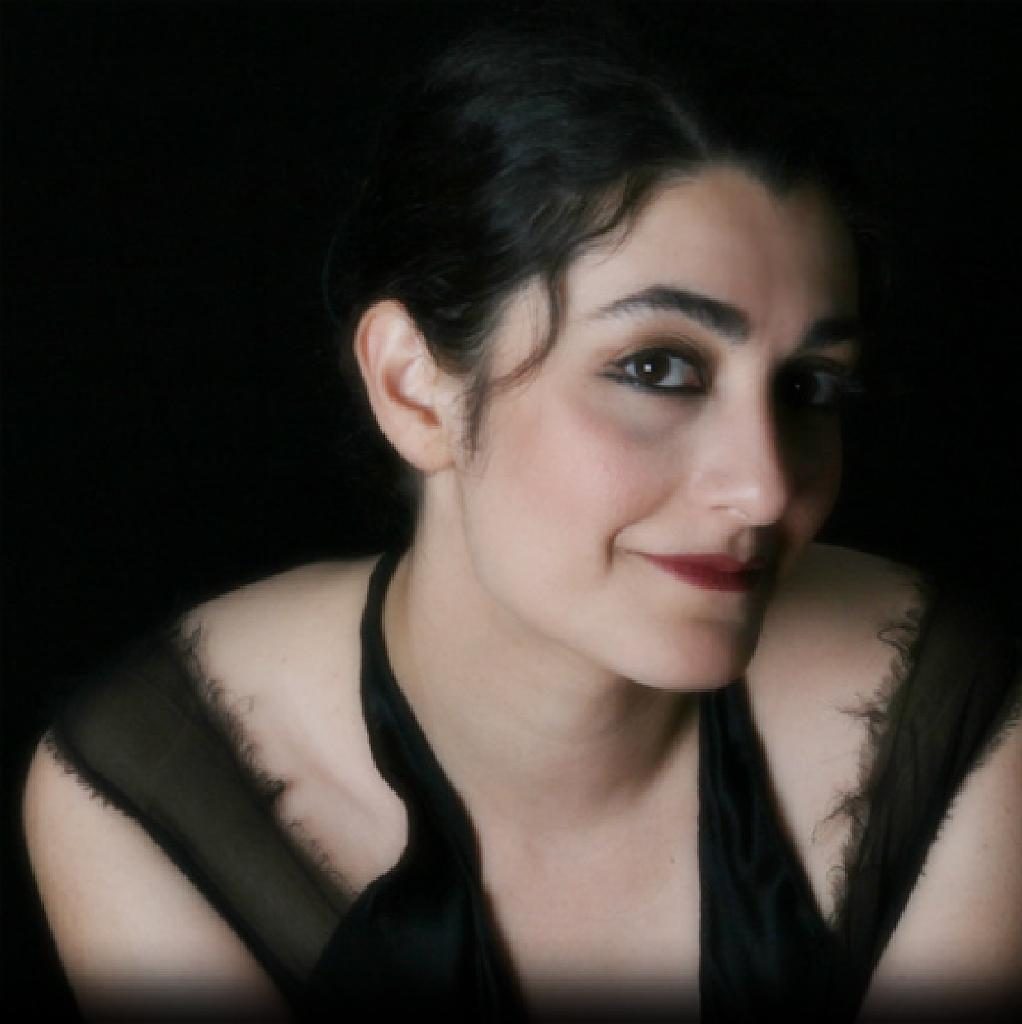Darya Dadvar is an acclaimed soprano soloist and composer. She is known for her eclectic approach to singing; creatively engaging with several genres and languages. She is also featuring in Tirgan 2015.
What led you to pursue opera? Did you take it up after you left Iran for France in 1991, or were you inspired earlier?
I wasn’t really inspired by opera when I left Iran. At the time, my favourite kinds of music were French, Italian and Iranian pop music, and old American songs. I was familiar with Persian folk songs, but had no idea about opera. When I came to France to continue my studies, I wanted to study medicine not singing. I did want to work on my singing, but not necessarily in an academic way. When I was still learning French, there was an International gathering where every country was presenting something. I was encouraged to sing so as to represent Iran. When organizers and teachers heard my voice, they suggested I audition for the Conservatoire. I auditioned and got in. While studying opera, I gradually fell in love with the genre. It took a few years to find the right tessitura of my voice. And only then did my passion for opera start to grow. I decided to continue singing and expand my technique rather than just singing for pleasure.
Let’s talk about your approach to music. Your style isn’t limited to the classical canon. You draw from Iranian poetry, folk songs, and even jazz. You also incorporate multiple languages into single songs. Why is such fusion important to you?
My style reflects who I am today. I didn’t initially plan on it being so. I was just trying to stay true to my music and my audience. I ignored the conventions, norms and restrictions. I let my mind wander… Finally, it happened. My roots—my Iranian background—were always there and helped me give birth to my style, even while I was studying opera at the Conservatoire . It came easy to me then. I remember that when I was reading in-between classical music sheets and notes, I wondered if the melody is similar to melodies from my own culture… European classical poetry was so beautiful, but at the same time I was frustrated that I couldn’t sing Iranian poems with it, like those of Hafez, Sa’di or Molana (Rumi). So I began mixing what I already knew from my heritage with what I was learning, and tried to come up with something new. I can sing in many languages now but my mix is usually in English, French, Persian and some ethnic dialects.
Speaking of “roots”, in a recent TV program focusing on your life in Paris you were discussing the challenges of life as an immigrant. Something you said stayed with me: “we Iranians keep searching for Iran in these other places we live.” What did you mean by this?
I’m Iranian and regardless of where I live, this is reflected in my songs, my daily life, my kids’ education, the language they speak, and so on; as though I’m still in Iran. After years of living outside of Iran, I feel that there is plenty of ‘Iran’ here as well. My culture pops up in everything I do: like the way I cook, the way I compose, the way I decorate my house. What’s important in my music is not just a search for Iran, but to find peace by bringing different cultures together: to somehow show that we are all the same.
What do you look for when you turn to the world of Iranian song? How do you select the songs that you perform?
It depends. Sometimes it’s a childhood memory that comes back to me: like a melody from when I was little, or hearing my mother singing, or remembering an artist that I really loved. Then I try to combine or rearrange the melody with other French or English songs. Sometimes, I hear a piece of music that blows me away, and I think ‘Wow, I have to sing this song!’ Also, I have to say that I don’t always try to mix songs. What is most important, when I select a song, is that it conveys a sense of hope, whether it’s in English, French or Persian. I usually don’t like singing sad songs, or hopeless songs that feel like you’re just lamenting the situation, or a lost love, or country, and so on.
In 2002 you performed in Tehran. You were credited with being the first woman to perform solo since the revolution owing to official restrictions on women singing. How were you received? And are you hopeful about the future of women in music in Iran?
I’m so grateful for to be the first female singer to perform solo in Iran following the revolution (1978-1979). It’s an honour. But, at the same time, it’s kind of a shame to say so; that it’s an ‘honour’ to sing as a woman soloist in public. This is something that should have been so natural to begin with. It’s a restriction that shouldn’t be there, because a woman’s voice is a natural thing. It always has been. If you ban it, then you’re denying nature. Whatever your religious beliefs or reasons, you’re questioning what God has already given to us. And about the future of women and music in Iran: not only am I hopeful, I’m also really proud of our women, and their struggles on a daily basis. They are the heroes of our country. I take my hat off for each and every woman in Middle East, and especially in Iran. They’re trying to make a better life for themselves and their family. We owe a part of our progress to the great women artists for sure.


